FBI is the problem, not the solution - Google Search Saturday March 16th, 2019 at 2:29 PM
- Get link
- X
- Other Apps
How to Remove the FBI Virus and Other Non Destructive Malware
Next Page of Stories
Loading...
Page 2
The FBI has been under non-stop assault since the election of 2016 — first by Democrats who decried its eleventh-hour decision to restart the Clinton email investigation, then by Donald Trump with his firing of James Comey. The Bureau is currently portrayed in the mainstream media as a friend of justice, suggesting an image rehabilitation after its lawlessness was exposed in the mid-1970s. Already, we have witnessed Comey and Andrew McCabe — who oversaw the FBI in the critical period of 9/11 to 2018 — painted as brave truth-tellers, instead of the repressive law enforcement agents they were. One can anticipate more of this, especially with the prospect of release of Robert Mueller’s report.
Who are these people presented to us as heroes? And who will a re-legitimating of the FBI benefit?
The Agency’s Sordid History
Despite much focus on the FBI recently, the history of those who lead it and the nature of the organization has largely remained unexamined in the mainstream media. In the case of Mueller, for example, we are told much about his appointment as special counsel after Comey’s firing, but little about his role as FBI director during George W. Bush’s administration. It was during that time that the FBI repeatedly targeted Muslim communities with informant-sting operations which were then touted as successful efforts at stopping terrorism. At the same time, the government adopted the USA Patriot Act, which ushered in a new era of governmental repression and supplied the FBI with an array of new suppressive tools. Also obscured from contemporary discussion is Mueller’s putting the FBI stamp of approval on the myth of weapons of mass destruction in Iraq as a pretext for the murderous U.S. war there. In short, with all the waiting for Mueller’s report, what is too often ignored is his essential role in some of the most repressive and egregious undertakings of the U.S. over the past two decades. Mueller has already caused trouble for Trump, and this is certainly welcome, but that is no reason to lose perspective on who he actually is and the role he has played in U.S. history.
Get the news you want, delivered to your inbox every day.
This applies to Comey as well, who replaced Mueller as FBI director. In 2003, Comey was deputy attorney general under John Ashcroft. While he has often been hailed for refusing to sign off on a particular surveillance order during that time, less discussed is his role in facilitating torture. Comey himself is aware of his legacy, and is quite defensive, writing at length in his book that he did not want to become the “torture guy.” What comes through in his own account is that he knew torture, a crime against humanity, was being used by the U.S.; that his office had sanctioned it, and yet, aside from some internal pushback, he did nothing further to stop it. All of which is telling, not only of Comey personally, but of the agencies he led.
McCabe — who was promoted to the FBI’s top leadership first by Mueller, then Comey — does not carry that particular stain, though he was, amid standing controversy, a key player in the Clinton email affair. It is worth remembering the Bureau’s initial role during the election of 2016: When Comey was director and McCabe was deputy director, the FBI’s attention to Hillary Clinton appears to have been elevated to, or above, interest in a hostile foreign power intervening in a U.S. presidential election. In that respect, there is an argument to be made that McCabe, Comey and the FBI played a role in getting Trump elected, all of which ought to give pause to those lined up now in support of the Bureau.
This becomes even clearer when looking at the makeup of the agency. Beyond the fact that Mueller, Comey, McCabe and current FBI Director Christopher Wray are Republicans, the Bureau — unlike the rest of the U.S. — is overwhelmingly white and male. Further, the FBI has been known to attract a particularly conservative element — for example, recruiting from and attracting members of the Republican-inclined Church of Latter Day Saints (Mormons) and evangelical Christians. While that does not prove the Bureau is, by default, an ultra-conservative organization (officially it is supposed to be nonpartisan), it suggests the opposite of being middle-of-the-road, let alone progressively inclined.
Given all this, we find ourselves in a situation where people who had either despised or had a healthy skepticism of the FBI are now full of illusions about it. This is largely a consequence of Trump firing Comey in May 2017 — first under pretense of his handling of the Clinton email matter, and later, articulated specifically by Trump because of “this Russia thing.”
Comey’s firing, nonetheless, has brought us to this moment. It is becoming clearer that there is now agreement among a cohort of people within the power structure that Trump and his cronies’ machinations with the Russians during the election, and Trump’s obsequiousness to Vladimir Putin, are not going to stand unopposed. And this was given an important boost with the results of the 2018 election and its mass rejection of Trump and the core that supports him. This helps explain why, as McCabe reports in his book, the “Gang of Eight” congressional leaders did not push back when McCabe told them that the Bureau was launching a counterintelligence investigation against the president after Comey’s firing. It also explains why the Mueller investigation has gotten as far as it has, and why Trump is besieged by an unprecedented array of other investigations. With all this, there is a certain denouement looming — amid continuing contention — and it is worth anticipating what we will be left with, particularly in how to view the FBI once the dust clears.
National Security Threats and Red Scares
In his new book, The Threat: How the FBI Protects America in the Age of Terror and Trump, McCabe begins by describing what he feels would be in his FBI personnel profile if he still had access to it. (Having been fired by Trump, he no longer does.) It is fairly predictable stuff — his schooling, background, friends and family — but twice in his exemplary work, he makes a point about sedition: “None [of those contacted] had ever seen or heard McCABE advocate for the overthrow of the United States, or support any group or organization opposed to the government of the United States.”
McCabe’s inclusion of this point inadvertently raises the specter of “McCarthyism” and “witch hunts” that have been the currency of Trump and his supporters (along with some elements on the left). The irony is that by invoking McCarthyism, they raise the specter of a period that does have ongoing relevance.
Contrary to received wisdom that the McCarthy era — which began well before McCarthy and lasted long past him — was an aberrant period in U.S. history, it was, among other things, a highly successful effort that facilitated the organizational suppression of the Communist Party. Leaving aside the larger critique of communism for the moment, this was unprecedented. Scores of Communist leaders were jailed under the provisions of the Smith Act, which made it a crime to advocate, or even teach the desirability, of the overthrow of the government. Sympathetic artists and intellectuals were driven from the public sphere. Multiple laws were passed mandating loyalty oaths denouncing the Communist Party, driving communists from unions, which required members to sign affidavits declaring they were not communists. And those who failed or refused to renounce communism needed to register as such or face legal consequences.
As a result, by 1953, a political party representing many tens of thousands was de facto (if not de jure) illegal. At the center of all this was the FBI, which had compiled files on more than 12,000 Communists the Bureau fully intended to detain in the event of a “national emergency.” That list was sanctioned by law and supported — tacitly or otherwise — by all presidents from Roosevelt to Nixon. If one wants to understand the depths of political repression possible in the U.S. and the necessity of the FBI in instituting such, one can find no better example than this Red Scare.
Further, while on one level, McCabe’s reference to overthrowing the government seems an archaic relic of the Cold War past, it goes to something central about the FBI’s stated mission “to protect and defend the United States against terrorist and foreign intelligence threats.” Currently, the greater share of the Bureau’s near 35,000 personnel are allocated to counterterrorism/counterintelligence and the separate category of intelligence — approximately 20,000 personnel to the 15,000 assigned to criminal enterprises and criminal justice services. In other words, the larger component of the FBI’s work remains focused on things other than “crime” — and it is there, historically, where the FBI has squared off against political challenges to the U.S. power structure.
It is also worth noting that none other than Donald Trump himself raised a certain specter in his 2019 State of the Union, declaring, “America will never be a socialist country” — an admission that there are quite a few people within U.S. society that see capitalism as the fundamental problem. Trumpian demagoguery aside, the polarization of U.S. society means the road ahead will be a contentious one. While the organizations that will emerge and the politics they cohere around is an open question, what is foreseeable is that the FBI will play the role of antagonist — beyond the one it is already playing against Black Lives Matter, various anti-fascists, and others.
Today, we find ourselves at an odd confluence of interests among a broad array of anti-Trump forces that include former leaders of the FBI. In this, we are being maneuvered — subtly and directly — toward re-establishing the political norms that preceded Trump. In that respect, in a post-Trump world (one that hopefully will come sooner than later), the likelihood of a stronger FBI looms large, and this will be good for the U.S. ruling structure. However, one only needs to look at the Bureau’s history to conclude that a stronger FBI will not be good for those straining against the abuses and inequality at the core of U.S. society.
Psssttt! While you’re here we really need your help.
Since Donald Trump took office, progressive journalism has been under constant attack and Facebook and Google are now intentionally limiting your access to sites like Truthout. As our traffic declined so have our donations. This is exactly what Trump wants.
Here’s how you can help: Since we don’t run ads or take corporate or government money, we need more support from our visitors.
By making a regular donation of any amount (whether you can give $1 or $10,000), you’ll help us fight back by increasing our distribution of journalism that makes a real difference.
Will you help us stand up to Trump today?
Yes, I’ll chip in
Read the whole story
· · · · · ·
Next Page of Stories
Loading...
Page 3
CHRISTCHURCH, New Zealand (AP) — When the gunman advanced toward the mosque, killing those in his path, Abdul Aziz didn’t hide. Instead, he picked up the first thing he could find, a credit card machine, and ran outside screaming “Come here!”
Aziz, 48, is being hailed as a hero for preventing more deaths during Friday prayers at the Linwood mosque in Christchurch after leading the gunman in a cat-and-mouse chase before scaring him into speeding away in his car.
But Aziz, whose four sons and dozens of others remained in the mosque while he faced off with the gunman, said he thinks it’s what anyone would have done.
The gunman killed 49 people after attacking two mosques in the deadliest mass shooting in New Zealand’s modern history.
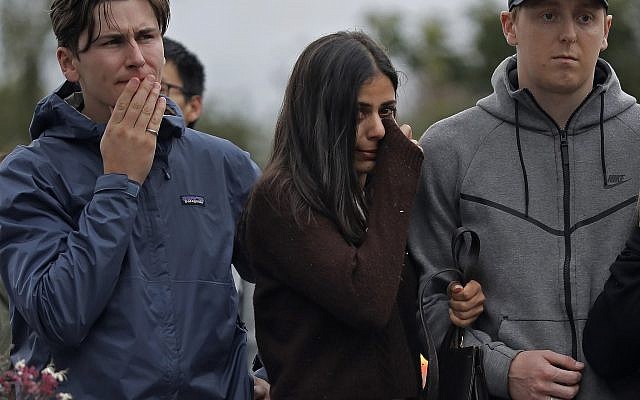
Mourners paying their respects at a makeshift memorial near the Masjid Al Noor mosque, March 16, 2019, in Christchurch, New Zealand (AP Photo/Vincent Yu)
The gunman is believed to have killed 41 people at the Al Noor mosque before driving about 5 kilometers (3 miles) across town and attacking the Linwood mosque, where he killed seven more people. One person died later in a hospital.
White supremacist Brenton Tarrant, 28, has been charged with one count of murder in the slayings, and a judge said Saturday that it was reasonable to assume more charges would follow.
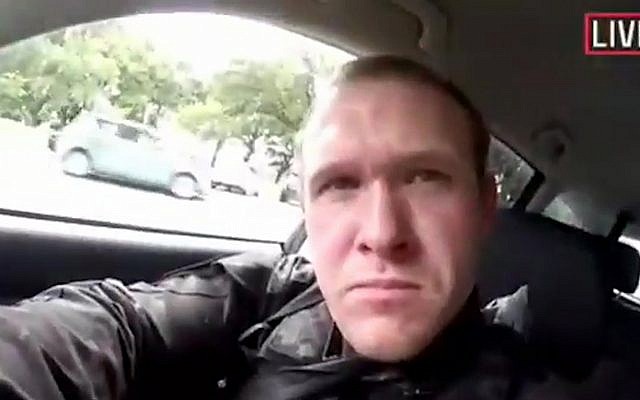
This frame from video that was livestreamed Friday, March 15, 2019, shows gunman Brenton Tarrant in a car before the mosque shootings in Christchurch, New Zealand. (Shooter’s Video via AP)
Latef Alabi, the Linwood mosque’s acting imam, said the death toll would have been far higher at the Linwood mosque if it wasn’t for Aziz.
Alabi said he heard a voice outside the mosque at about 1:55 p.m. and stopped the prayer he was leading and peeked out the window. He saw a guy in black military-style gear and a helmet holding a large gun, and assumed it was a police officer. Then he saw two bodies and heard the gunman yelling obscenities.
“I realized this is something else. This is a killer,” he said.
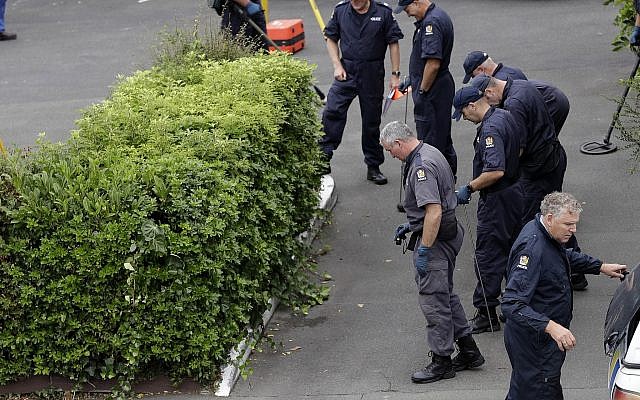
Police search for evidence in the grounds of a motel near the Masjid Al Noor mosque in Christchurch, New Zealand, March 16, 2019 (AP Photo/Mark Baker)
He yelled at the congregation of more than 80 to get down. They hesitated. A shot rang out, a window shattered and a body fell, and people began to realize it was for real.
“Then this brother came over. He went after him, and he managed to overpower him, and that’s how we were saved,” Alabi said, referring to Aziz. “Otherwise, if he managed to come into the mosque, then we would all probably be gone.”
Aziz said as he ran outside screaming, he was hoping to distract the attacker. He said the gunman ran back to his car to get another gun, and Aziz hurled the credit card machine at him.
He said he could hear his two youngest sons, aged 11 and 5, urging him to come back inside.
The gunman returned, firing. Aziz said he ran, weaving through cars parked in the driveway, which prevented the gunman from getting a clean shot. Then Aziz spotted a gun the gunman had abandoned and picked it up, pointed it and squeezed the trigger. It was empty.
He said the gunman ran back to the car for a second time, likely to grab yet another weapon.
“He gets into his car and I just got the gun and threw it on his window like an arrow and blasted his window,” he said.
The windshield shattered: “That’s why he got scared.”
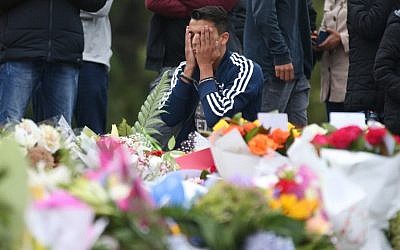
People pay their respects in front of floral tributes for victims of the March 15 mosque attacks, in Christchurch on March 16, 2019. (David Moir/AFP)
He said the gunman was cursing at him, yelling that he was going to kill them all. But he drove away and Aziz said he chased the car down the street to a red light, before it made a U-turn and sped away. Online videos indicate police officers managed to force the car from the road and drag out the suspect soon after.
Originally from Kabul, Afghanistan, Aziz said he left as a refugee when he was a boy and lived for more than 25 years in Australia before moving to New Zealand a couple of years ago.
“I’ve been to a lot of countries and this is one of the beautiful ones,” he said. And, he always thought, a peaceful one as well.
Aziz said he didn’t feel fear or much of anything when facing the gunman. It was like he was on autopilot. And he believes that God, that Allah, didn’t think it was his time to die.
Read the whole story
· · · · · · ·
Germany probes far-right threats to politicians, celebrities and Jewish group The Times of Israel

 "israel and germany" - Google News
"israel and germany" - Google News
Targets include Central Council of Jews and a pop star who was critical of racist violence at last year's Chemnitz protests.
Get breaking news alerts and special reports. The news and stories that matter, delivered weekday mornings.
By Linda Givetash
As New Zealand moves ahead with its investigation of a massacre at two mosques, countries in Europe have launched a probe into the suspect's potential ties to the region.
Brenton Harrison Tarrant, a 28-year-old Australian national, was charged with murder for the shooting deaths of at least 49 people during Friday prayers in Christchurch.
He appeared in court on Saturday morning, shackled and wearing all-white prison garb, and showed no emotion when the judge read him one murder charge.
Tarrant has been described by officials as a "right-wing extremist terrorist" and appeared to post a lengthy manifesto before the attack detailing his white-supremacist worldview.
That global focus was coming under scrutiny Saturday, particularly the suspect's apparent interest in — and possible connections to — white European nationalism.
As police in New Zealand prepare additional charges, authorities in Bulgaria and Turkey are probing the suspect's travels to the respective countries.
New Zealand's Prime Minister Jacinda Arden said Saturday that the Australian citizen had been in and out of the country while also traveling the world. She said agencies would be piecing together his travel and the sequence of events that led to him getting a gun license.
Bulgarian Prosecutor General Sotir Tsatsarov confirmed Tarrant had multiple visits to the country and exhibited interest in historic battles between Christians and the Ottoman empire. He said investigators are now working to determine if Tarrant had any ties with Bulgarians.
Tarrant's most recent visit to the country in November involved stops at historic sites in the capital Sofia and a number of other cities before traveling to neighboring Romania and Hungary, the prosecutor said. He also visited other Balkan nations Montenegro and Serbia in December 2016, Tsatsarov added, and he appeared to have good knowledge of the region's history.
"We express our deepest condolences and do not want Bulgaria, which is an ethnically tolerant country, to be associated in any way with this horrible and unjustifiable act," said Interior Minister Mladen Marinov in a statement released to the Bulgarian news agency BTA.
The prosecutor added Bulgarian officials were working with security partners across the globe, including Serbia and the United States.
A senior Turkish official also confirmed Saturday that the suspect in the massacre had visited the country multiple times, including an "extended" visit, although they would not confirm when these travels occurred. The official told The Associated Press that an investigation into "the suspect's movements and contacts within the country" were underway.
Mark Briskey, a lecturer in criminology at Murdoch University in Australia, told NBC News on Friday that references in the manifesto go "back to antiquity almost" and raise questions about which people or organizations may have influenced the suspect's ideology.
The manifesto referred to the victims of a terror attack in Stockholm and racial tensions in the Balkans. The author says he was inspired by Charleston church shooter Dylann Roof as well as Anders Behring Breivik, the far-right terrorist who killed 77 people in Norway in 2011.
The suspect also appeared to film Friday's attack on a head-mounted camera and live-streamed on Facebook, although that has not been confirmed by officials. The footage showed him listening to a Serbian folk song about Radovan Karadzic — the Bosnian Serb political leader convicted of war crimes including the 1995 genocide of Muslims in Srebrenica — before getting out of the car to retrieve a weapon.
The video, and several images posted to social media that appear to tally with the incident, shows weapons scrawled with writing about Serbian knights who fought Ottoman Turks and Bosnians in the Middle Ages.
The manifesto condemns the U.S.-led bombing of Yugoslavia, which began 20 years ago next week, saying that NATO "fought beside Muslims and slaughtered Christian Europeans attempting to remove these Islamic occupiers from Europe."
Paul Spoonley, a professor at New Zealand's Massey University, said that the far-right has "been building for some time but it's still quite a minor part of the political spectrum in New Zealand."
Speaking to Britain's Sky News, he said: "Somehow we thought we were exempt from it but that innocence has been completely blown away today.
"Rather than focusing on only domestic grievances, white-supremacist nationalists are increasingly taking their cues from incidents around the world, championing international supporters of their cause and condemning what they see as injustices around the world," Spoonley added.
Linda Givetash is a reporter based in London. She previously worked for The Canadian Press in Vancouver and Nation Media in Uganda.
Vladimir Banic and Associated Press contributed.
Read the whole story
· · · ·
кол - таран - Google Search

кол - таран - Google Search

кол - таран - Google Search

"Why alleged New Zealand mosque killer represents a broader 'social movement",
M.N.: And why he does not: It looks clearly (to me at least) as the intelligence operation, similar to the hundreds of them staged earlier; and not by the Russians or the Israelis but by the New Abwehr reliving, reconstructing, and reminiscing their old fascist games. In this particular operation they demonstrated the powers of the independent broadcasting over and across the social media platforms as the propaganda tool. The verbal component of the message is also there:
New Zealand: New Zeal Land
Brenton Tarrant: Brent: reference to Brent brand of British oil, see also the meanings of the name Brenton.
Tarrant: Tar (tarnish), rant... Signature: "ant": Aunt, the Aunty, the nickname that I gave to Abwehr.
Also: "Tarrant" = Taran"
Also: "Tarrant" = Taran"
"Brent is on taran"... etc. | таран
Description
A battering ram is a siege engine that originated in ancient times and designed to break open the masonry walls of fortifications or splinter their wooden gates. Wikipedia
I do not think that these acts will stop any time soon. That is why I advised very clear and simple course of actions, in one of the posts yesterday: Arrest Shroeder and Uhrlau and extract the information from them. And do it now, while they are still alive.
Only going at the heart of the conspiracy will stop it.
Michael Novakhov
11:09 AM 3/16/2019
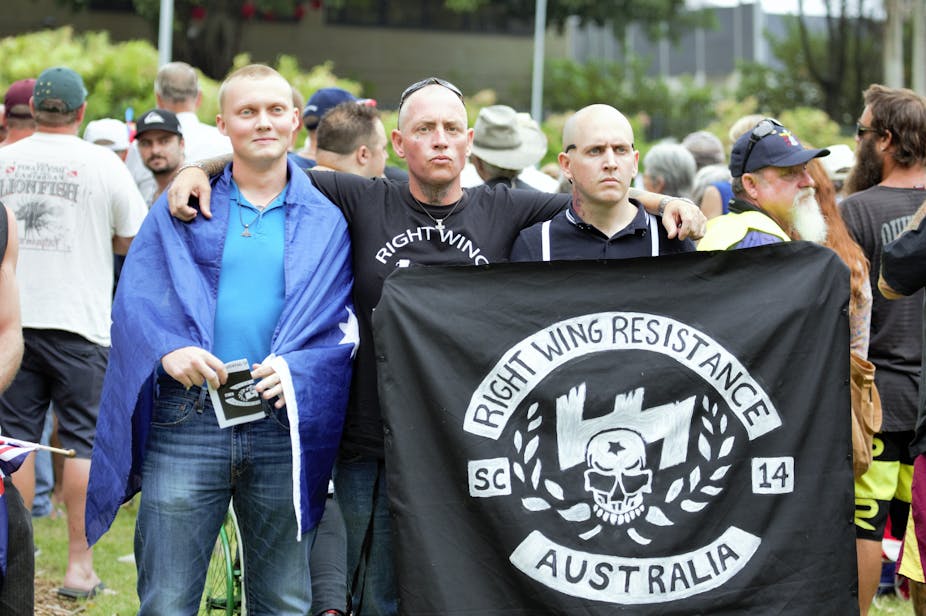
Breaking News Emails
Get breaking news alerts and special reports. The news and stories that matter, delivered weekday mornings.
By Brandy Zadrozny and Ben Collins
Researchers have warned tech companies for years that online extremism and radicalization results in real-world violence. On Friday, those warnings appeared prophetic again when a shooter with a history of social-media radicalism entered two mosques in Christchurch, New Zealand, and killed 49 people.
An online manifesto apparently connected to the accused shooter listed a variety of online influences related to the crime, including “the internet” itself.
“Much like a lot of researchers and journalists on this beat, I’m yo-yo-ing between hopeless and furious,” said Becca Lewis, a researcher with the technology research nonprofit Data + Society. “It’s not gratifying to be right in this situation.”
Researchers told NBC News that they had raised concerns about online extremism both in conversations and in published research papers, but said their warnings and ideas to help prevent online radicalization have been largely ignored. Lewis published a report in September that detailed how YouTube influencers and far-right extremists gamed YouTube’s algorithm to push radicalization messages and turn a profit.
Lewis and other online extremism researchers are now hoping the shooting could be a wake-up call to companies like Facebook and YouTube, which they hope will be more transparent and proactive in scuttling white supremacist and extremist content.
Lewis said, however, that she is not particularly optimistic.
“Where I get pessimistic about it is that these problems didn’t start with the tech companies,” Lewis said. “They’ve just been very profitable for them.”
Facebook and YouTube did not immediately respond to a request for comment.
The manifesto, which frequently mentioned far-right influencers and groups on YouTube and other platforms, was posted next to a link to a Facebook page that live-streamed the murders. On the Facebook page and a separate Twitter account linked to the shooter, links to anti-immigrant YouTube videos from both white nationalist YouTube channels and state-funded news operations like Russia Today filled the timeline.
The pattern of social media and message board posts echoed other mass killings in recent years that have been linked to online extremism. Whitney Phillips, an assistant professor of communication at Syracuse University who studies the effects of online trolling on mainstream culture, said the social media postings tied to the alleged shooter were all too familiar.
"This case is heartbreaking and disgusting and viscerally repulsive and it's not surprising. That's what’s so upsetting,” Phillips said. “There are so many ways in which social media platforms facilitate, embolden and incentivize all kinds of bigoted expression."
The emergence of internet-native extremism is a relatively recent phenomenon, predated by real-world extremism that created initial problems for tech companies such as Google, which dedicated significant resources to eliminating ISIS propaganda.
Phillips said that the most toxic parts of the internet grew out of a digital culture of trolling that had at one time seemed mischievous but mostly innocuous. That changed dramatically in the past several years, as memes and provocateurs on social media began to pervade both pop culture and politics. Millions of dollars were poured into propping up meme-based political content and advertisements, both from U.S. political campaigns and lobbying organizations as well as shadowy foreign influence campaigns seeking to sow division and amp up racist rhetoric.
What emerged was “a soup of toxicity online” that maintained a veneer of innocence, Phillips said.
“A lot of the stuff that passed as fun, the media manipulation strategies that were part of ‘fun trolling’ in the early days, a lot of that established a behavioral blueprint and also created a kind of umbrella that people could hide under,” Phillips said.
While it's not immediately clear how the shooter became radicalized, the manifesto revealed that he is apparently well-versed in the language and culture of the fringe internet. The 74-page document is peppered with memes and inside jokes meant as a wink to the users on the politics portion of the 8chan message board where he first posted his intention.
The references also serve to deceive outsiders and journalists, acting as trap in an attempt to trick them into making assumptions or mistakes. In the live-streamed video, the shooter looks into the camera and says “subscribe to Pewdiepie,” a running internet joke about a campaign centered on a popular YouTube star. The star, whose given name is Felix Kjellberg, also became something of a martyr in some corners of the internet to fans who said they believed the media’s coverage of his use of Nazi imagery was unfair.
Researchers described these efforts as "bait," urging journalists not to share the document or the video, and requesting that sharing sites like YouTube not make it available for viewing.
Joan Donovan, director of the Technology and Social Change Research Project at Harvard University’s Shorenstein Center, warned that the online postings showed all the hallmarks of a seasoned internet troll who had planned a media-ready spectacle.
"His social media is all pre-packaged for journalist's consumption," Donovan said. "And it’s spread across platforms so it’s impossible to really moderate or mitigate."
Donovan also warned against focusing on the online postings in lieu of the bigger problems posed by digital platforms.
“There's no kernel of truth here,” she said. “There's nothing to get below the surface of. We have someone who was obviously just a vicious racist.”
She added: "If the platforms aren't going to be dedicated to removing this stuff, then we aren't going to have the internet we want, we're going to have the internet we deserve."
CORRECTION (March 15, 2019, 8:43 p.m. ET) A previous version of this article misstated where the shootings took place. It was two mosques in Christchurch, not one.
Brandy Zadrozny is an investigative reporter for NBC News.
Ben Collins covers disinformation, extremism and the internet for NBC News.
Read the whole story
· · · · · · · · · · · · · · ·
Why alleged New Zealand mosque killer represents a broader 'social movement'
Shields and Brooks on New Zealand massacre, 2020 Democrats’ ideology
Trump Investigations News In 250 Brief Posts
-
» Michael Novakhov - SharedNewsLinks℠: Why alleged New Zealand mosque killer represents a broader 'social movement' - YouTube
16/03/19 09:51 from Trump Investigations from Michael_Novakhov (32 sites)
Michael_Novakhov shared this story . Why alleged New Zealand mosque killer represents a broader 'social movement' Michael Novakhov - SharedNewsLinks℠
16/03/19 09:51 from Trump Investigations from Michael_Novakhov (32 sites)
Michael_Novakhov shared this story . Why alleged New Zealand mosque killer represents a broader 'social movement' Michael Novakhov - SharedNewsLinks℠
» Michael Novakhov - SharedNewsLinks℠: Shields and Brooks on New Zealand massacre, 2020 Democrats’ ideology - YouTube
16/03/19 09:26 from Trump Investigations from Michael_Novakhov (32 sites)
Michael_Novakhov shared this story . Shields and Brooks on New Zealand massacre, 2020 Democrats’ ideology Michael Novakhov - SharedNewsLinks℠
16/03/19 09:26 from Trump Investigations from Michael_Novakhov (32 sites)
Michael_Novakhov shared this story . Shields and Brooks on New Zealand massacre, 2020 Democrats’ ideology Michael Novakhov - SharedNewsLinks℠
» mikenov on Twitter: Gantz, Netanyahu’s Challenger, Faces Lurid Questions After Iran Hacked His Phone nyti.ms/2TalKbU
16/03/19 09:25 from Trump Investigations from Michael_Novakhov (32 sites)
Gantz, Netanyahu’s Challenger, Faces Lurid Questions After Iran Hacked His Phone nyti.ms/2TalKbU Posted by mikenov on Saturday, March 16th, 2019 1:25pm mikenov on Twitter
16/03/19 09:25 from Trump Investigations from Michael_Novakhov (32 sites)
Gantz, Netanyahu’s Challenger, Faces Lurid Questions After Iran Hacked His Phone nyti.ms/2TalKbU Posted by mikenov on Saturday, March 16th, 2019 1:25pm mikenov on Twitter
» Michael Novakhov - SharedNewsLinks℠: Gantz, Netanyahu’s Challenger, Faces Lurid Questions After Iran Hacked His Phone
16/03/19 09:24 from Trump Investigations from Michael_Novakhov (32 sites)
Michael_Novakhov shared this story . NAHAL OZ, Israel — Benny Gantz, Israel’s former army chief, is campaigning to lead his country as the clean, moral alternative to Prime Minister Benjamin Netanyahu, who faces indictment in...
16/03/19 09:24 from Trump Investigations from Michael_Novakhov (32 sites)
Michael_Novakhov shared this story . NAHAL OZ, Israel — Benny Gantz, Israel’s former army chief, is campaigning to lead his country as the clean, moral alternative to Prime Minister Benjamin Netanyahu, who faces indictment in...
Read the whole story
· · · · · · · · · · · · · · ·
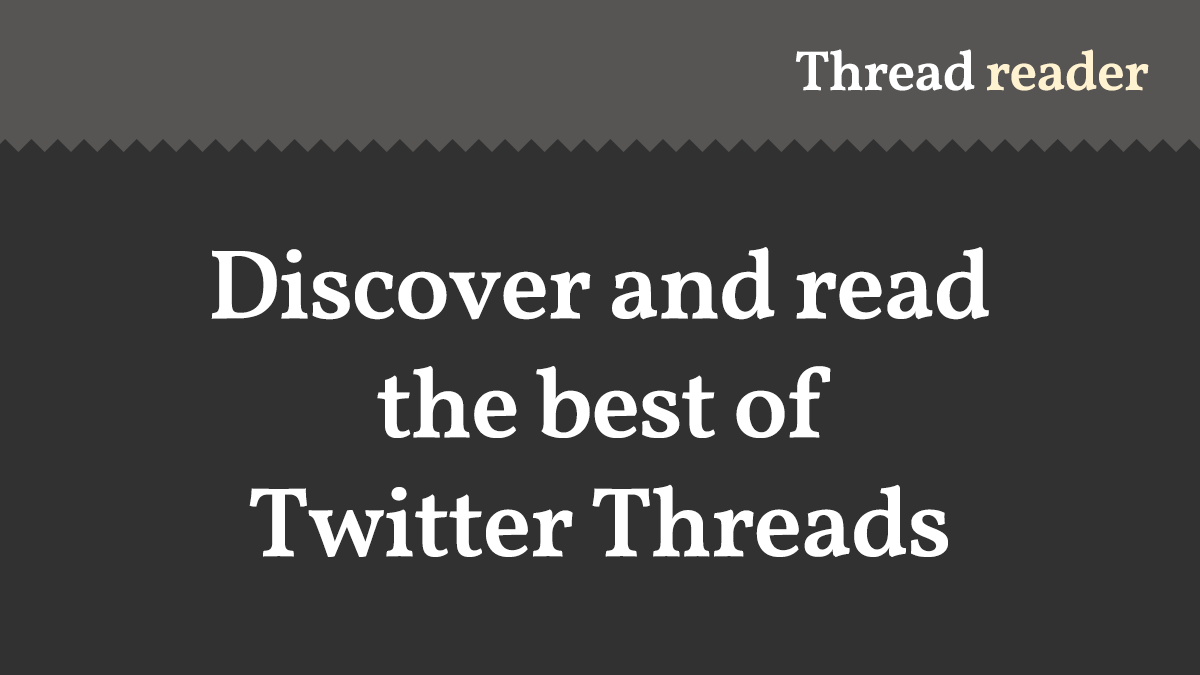







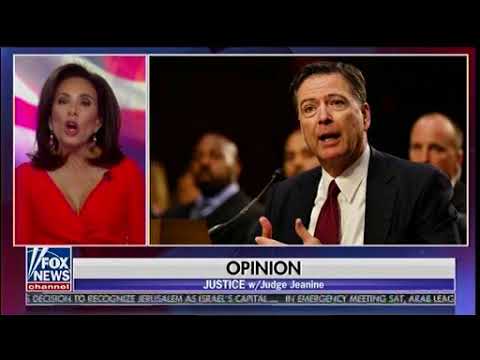

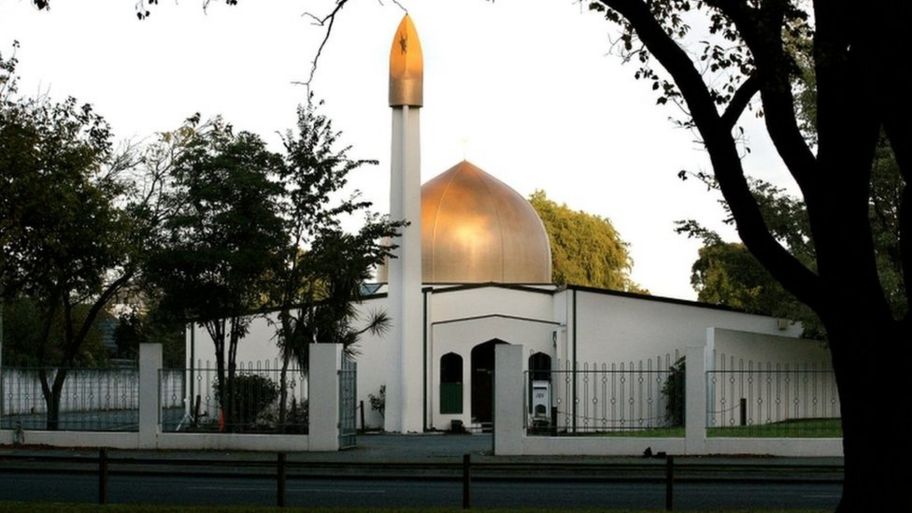


Comments
Post a Comment